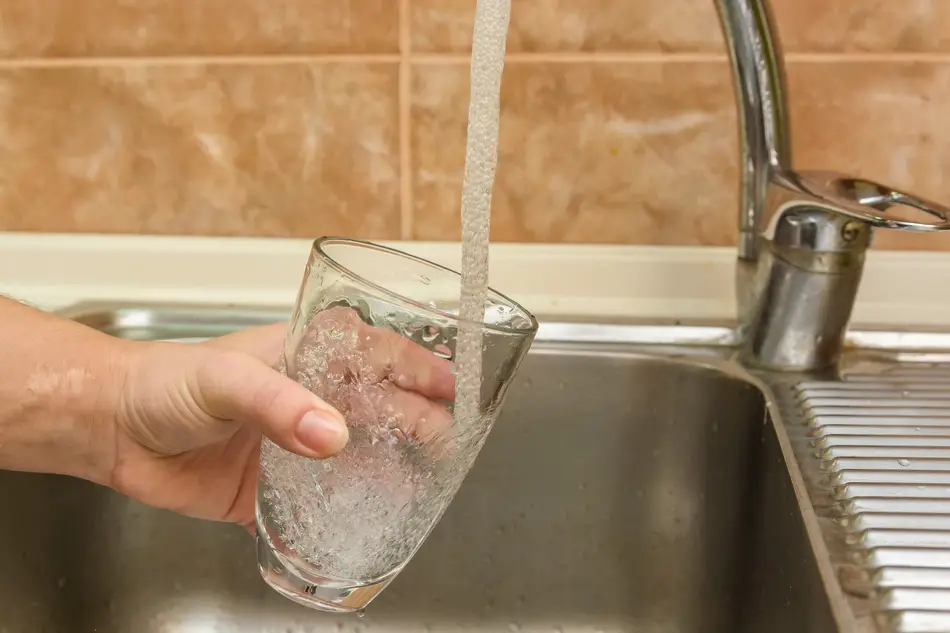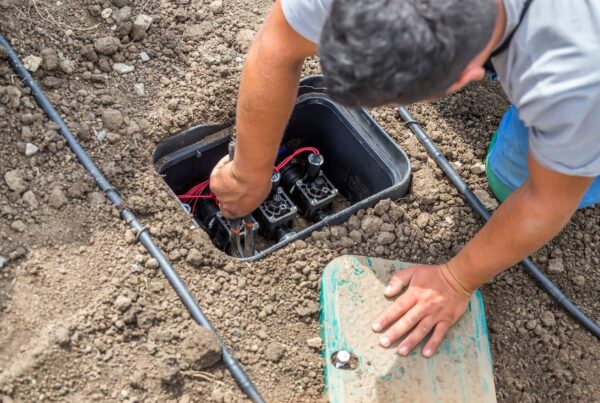
Water is the cornerstone of life, and for many, well water is the source that quenches this vital need. It’s a self-sufficient system that draws from nature’s underground reservoirs, offering a sense of independence from municipal water supplies. Grasping the essence of well water, its origins, workings, and the care it demands is fundamental for those who rely on it. In this article, learn about well water, how you know if you use it, and answer the question of where it comes from.
What is Well Water?
This is essentially groundwater accessed through drilling or digging operations to reach an aquifer. These aquifers are layers of permeable rock, sand, or gravel that hold water and allow it to flow through them. The water from these sources is often clear and rich in minerals, having been naturally filtered through the earth’s layers.
History of Well Water
The history here is as old as civilization, with ancient communities recognizing the importance of accessing clean water for survival. From simple hand-dug pits to the sophisticated drilling technologies of today, the quest for freshwater has driven human innovation over millennia.
How Do You Know If You Have Well Water?
Identifying whether you have well water is relatively straightforward. If your home is not connected to a municipal supply and you have a good cap or visible pump equipment, you are likely drawing water from a well. Additionally, the absence of a monthly bill from a public utility is a strong indicator.

Where Does Well Water Come From?
It begins as rain or snow that soaks into the ground. Over time, this water percolates through soil and rock, making its way into aquifers. These natural storage systems can be shallow or deep beneath the earth’s surface, and they are the starting point for what ends up being drawn into wells.
How Does it Work?
Extracting starts with the system including a pump to draw water from the aquifer. Once the water reaches the surface, it is stored in a pressure tank that ensures consistent water pressure when taps are turned on inside the home.
Pros and Cons
As with everything, there are pros and cons. Well water has advantages, such as the absence of a bill and a natural taste that many find superior. However, it also carries responsibilities like regular maintenance and the risk of contamination. Moreover, well owners must be vigilant about water levels, particularly during drought conditions, to avoid depleting their supply.
What Else to Know
Understanding your well involves knowing its depth, the yield of the aquifer it taps into, and the specifics of the pump system installed. Equally important is being aware of the water quality and any treatment systems that may be necessary to ensure the water is safe for consumption.
Process of Water Testing
The process of testing, understanding common contaminants, and exploring available treatment options are essential steps in ensuring safety and quality. Testing your water is important as you must ensure it is safe. Water testing is a systematic procedure that involves several key steps:
1) Sample Collection: The first step is to collect a sample for analysis. This should be done using clean, sterilized containers, typically provided by the testing laboratory. It’s important to follow specific instructions for sampling to avoid contamination, which may include running for several minutes before collection.
2) Laboratory Analysis: Once collected, the sample is sent to a certified laboratory where it is tested for various chemical and biological contaminants. Laboratories offer different testing packages depending on the suspected contaminants or the recommendations of local health departments.
3) Interpreting Results: After the laboratory has completed the testing, they will issue a report detailing the concentrations of various substances in the water. These results are compared against the standards set by regulatory agencies, such as the Environmental Protection Agency (EPA) in the United States, to determine if the water is safe for consumption.
4) Consultation with Experts: If contaminants are found at unsafe levels, it’s advisable to consult with water quality experts or local health officials to understand the implications and to explore treatment options.

Common Contaminants Found in Well Water
It is important to know also what can affect quality. Some of the most common include:
- Biological Contaminants: Bacteria (such as E.coli), viruses, and parasites can enter water from septic systems, animal waste, and natural soil organisms.
- Chemical Contaminants: These can include nitrates/nitrites from fertilizers, pesticides, industrial chemicals, heavy metals like lead and arsenic, and volatile organic compounds (VOCs) from various man-made sources.
- Physical Contaminants: Sediment or organic material suspended in the water can cause cloudiness and affect taste and odor.
- Radiological Contaminants: Elements like uranium or radium can naturally occur in certain geologies and may leach into groundwater.
Available Water Treatment Options
Treatment options vary based on the type and concentration of contaminants present. Some common treatment methods include:
- Filtration Systems: These remove physical contaminants through a physical barrier. Activated carbon filters can also reduce certain chemicals and improve taste and odor.
- Reverse Osmosis: This process forces water through a semi-permeable membrane, effectively removing a wide range of contaminants, including many chemicals and heavy metals.
- Distillation: By boiling water and condensing the steam, distillation units can remove minerals, bacteria, and other contaminants.
- Ultraviolet (UV) Light: UV purification systems can disinfect water by killing bacteria and viruses without adding chemicals.
- Ion Exchange: Typically used for softening water, ion exchange can also remove heavy metals and radionuclides.
- Chemical Disinfection: Chlorination or the use of other disinfectants can kill biological contaminants but may not address chemical pollutants.
It’s crucial to match the treatment system to the specific contaminants identified in the water test results. In some cases, a combination of treatment methods may be necessary to ensure the water is safe for all household uses. Regular maintenance of treatment systems is also vital to their effectiveness and longevity.
Conserving Well Water
Conserving well water is a critical practice, especially during periods of drought when the replenishment of aquifers slows down. To ensure that your well doesn’t run dry and to maintain a sustainable water supply, consider adopting a more holistic approach to water usage.
Start by addressing leaks immediately. A dripping faucet or a running toilet can waste an astonishing amount of water over time. Keeping your plumbing in good repair is a simple yet effective conservation measure. Additionally, upgrading to water-efficient fixtures throughout your home can lead to significant savings in water use without compromising on your daily needs.
Be mindful of how you use water in your daily routines. Simple changes like taking shorter showers, turning off the tap while brushing teeth, and waiting for full loads before using the dishwasher or washing machine can collectively make a substantial difference in your household’s water consumption.
Using Water Outdoors
When it comes to outdoor usage, timing and technique matter. Watering lawns and gardens during the cooler parts of the day minimize evaporation. Also, if you utilize drip irrigation, it can deliver water directly to plant roots, drastically reducing waste. Embrace landscaping that favors native or drought-resistant plants. Those naturally require less water and use mulch to help the soil retain moisture.
Rainwater Harvesting Systems
Consider supplementing your water supply with rainwater harvesting systems. Capturing rainwater for non-potable uses like irrigation can ease the demand on your well and preserve its longevity. If regulations permit, you might also explore recycling greywater from baths and laundry. Then, you can redirect for uses such as flushing toilets or watering plants.
Educating everyone in your home about the importance of water conservation is also crucial. When everyone’s aware of the need to save water and does their part, conserving becomes easier. collective effort.
Monitor Your Water Usage
Lastly, keep a close eye on your water usage. Monitoring for any unusual increases can help you identify and address hidden leaks or inefficiencies in your system. Planning for water storage solutions, like a reservoir tank, can provide a buffer during times of high demand or limited supply, ensuring that you have access to water when you need it most.
By integrating these practices into your lifestyle, you can help protect your well from overuse, contribute to the sustainability of groundwater resources, and secure your water supply for the future, even in the face of challenging drought conditions.
Maintenance for a Well
No, let’s take a look at a few other areas of maintenance. One of those is brown well water. When it is brown, it means it possibly has a lot of iron in it, but it could also be other reasons. The other reasons may be an issue with the pipes or the need for a water softener.
Another is how long a well lasts. They can last from 30-50 years and even sometimes 100 years! It is a great idea to keep up with the maintenance so you get as much life as possible out of it.
Lastly, many wonder if there is fluoride in well water. There is fluoride content, but it is a good idea to have the water tested every three years to make sure the fluoride levels are not too high.
Maintenance is critical for ensuring a clean and reliable water supply. This includes annual testing of the water for contaminants, routine inspections of physical condition, and cleaning or rehabilitation work as needed to keep the system functioning.
When to Call a Professional
There are times when a professional should be consulted, such as when there’s a noticeable change in the water’s taste, odor, or appearance, or when the well or pump system shows signs of malfunction. Professionals should also be involved in the annual inspection and maintenance of the well.
In case you are wondering how your well system works, check out this video below!
Conclusion
Owning a well is a commitment to stewardship over a private piece of the cycle. With diligent attention and care, well water can provide a satisfying and sustainable water source. Recognizing when to handle maintenance yourself and when to call in the experts is crucial. Call on the Bentley Home Inspection team for a well inspection in East Tennessee, and surrounding areas.



